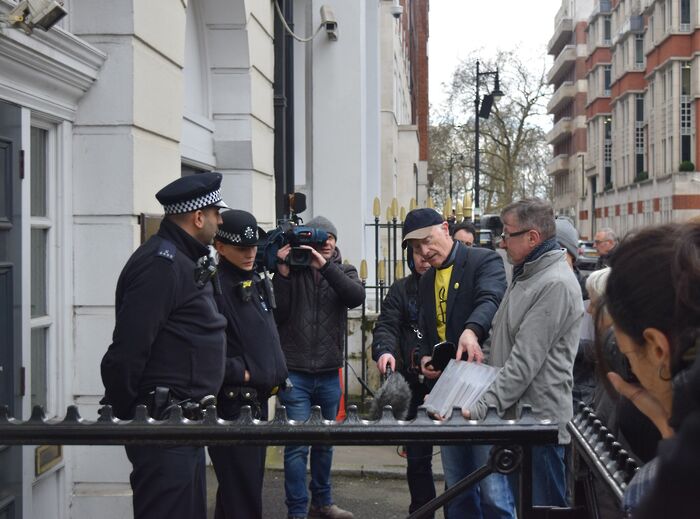Edward Snowden revealed as ‘secret speaker’ for exclusive Cambridge student event
Snowden, who faces two criminal charges for violation of the US Espionage Act, was invited by the Ethics in Mathematics society to speak via video

CIA whistleblower Edward Snowden is to appear via video link on Wednesday at the University's Centre for Mathematical Sciences, for an interview hosted by the Cambridge University Ethics in Mathematics Society (EiM).
Having been granted temporary asylum by the Russian government since 2013, Snowden will be streamed in from Moscow, as he currently faces two counts of espionage and a charge of theft of United States government property.
EiM members were first alerted to the upcoming event through a cryptic email announcing an interview with a “secret speaker”, in what the society described as their “biggest event of the year”.
In the email, interested mathematicians were offered the opportunity to “try and decipher the name” in advance of the official identity revelation, using only the code: 3yK0czBI93E2 VuWVEuXggw.
Snowden, a former employee of the US Central Intelligence Agency, attracted worldwide attention in 2013 when he copied and leaked classified information from the National Security Agency (NSA).
The files revealed extensive Internet and telephone surveillance by American intelligence services. Snowden has been hailed by some as a patriot, while to others is considered to be a national traitor.
The Cambridge University Ethics in Mathematics Society is no stranger to controversy. Last year, they invited Editor-in-Chief of Wikileaks Julian Assange to appear via video link from the Ecuadorian Embassy in London – where he has sought asylum since 2012 – provoking outrage due to allegations of sexual assault levelled against him.
The student-run Ethics in Mathematics Society regularly organises seminars and speakers, though the majority do not face international arrest warrants. On their webpage, the society states their objective as to “help mathematicians to understand that their work, output, insight and labour can be used not only for good, but also for bad.”
Varsity has contacted the Ethics in Mathematics Society for comment.
 Comment / Plastic pubs: the problem with Cambridge alehouses 5 January 2026
Comment / Plastic pubs: the problem with Cambridge alehouses 5 January 2026 News / Cambridge businesses concerned infrastructure delays will hurt growth5 January 2026
News / Cambridge businesses concerned infrastructure delays will hurt growth5 January 2026 News / Cambridge academics stand out in King’s 2026 Honours List2 January 2026
News / Cambridge academics stand out in King’s 2026 Honours List2 January 2026 News / AstraZeneca sues for £32 million over faulty construction at Cambridge Campus31 December 2025
News / AstraZeneca sues for £32 million over faulty construction at Cambridge Campus31 December 2025 Interviews / You don’t need to peak at Cambridge, says Robin Harding31 December 2025
Interviews / You don’t need to peak at Cambridge, says Robin Harding31 December 2025











